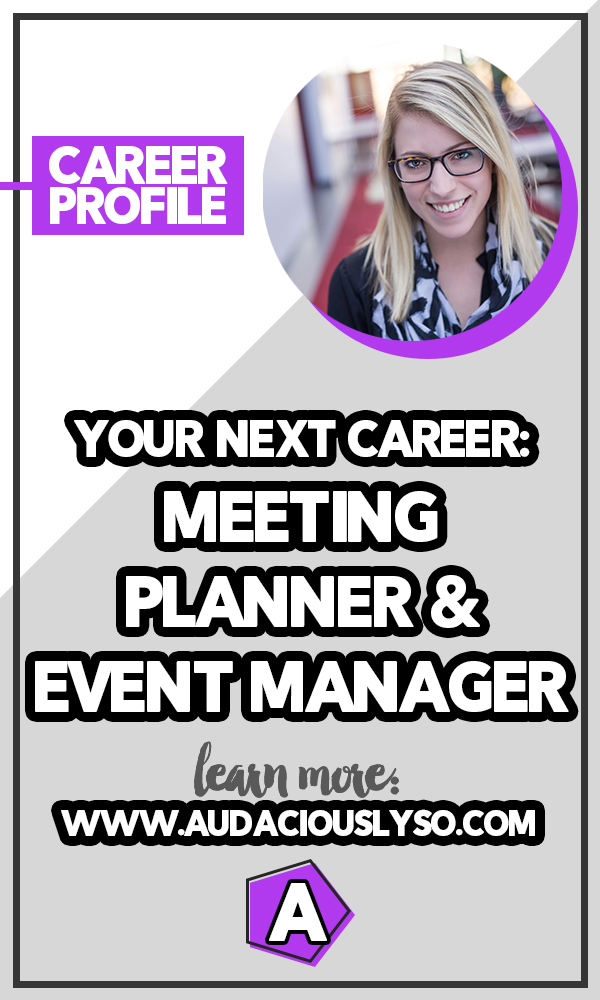Guest post written by Julie, founder of MillennialBoss.com.
When I first graduated college, I went to interview after interview but I didn’t get any offers. I had no idea what I was doing wrong.
When I first graduated college, I went to interview after interview but I didn’t get any offers. I had no idea what I was doing wrong.
Three years later, I became a manager and started interviewing candidates for my own team. By interviewing others, I could see exactly what I was doing wrong before. I've now created an interview blueprint that works for me.
I recently applied for jobs and received offers at all four of the companies I interviewed with! All four offers included a substantial raise and bonus. I now want to share what I’ve learned about interviewing to help other young professionals get ahead.


1. Prepare Stories
Stories are powerful interview tools. They allow candidates to share their knowledge and values. Compelling stories also produce important chemical changes in the brain that could improve chances of hire.
The best candidates understand the powerful impact of storytelling and come prepared with a short list of stories. The five stories you need to prepare for any interview are as follows:
- The "tell me about yourself" story
- The "why do you want this job" story
- The "conflict" story
- The "greatest weakness" story
- The "why should we hire you" story
Most candidates expect these five interview questions but they don't spend any time preparing short stories that support their answers. Stories are more effective than standard interview responses because 1) they're easier for interviewers to remember after the interview ends and 2) they're much more engaging for the interviewer.
Keeping the interviewer engaged is an underrated interview skill since candidates tend to ramble on when they're nervous or falsely assume that the more details they pack into their response, the better.
A short but engaging response beats a long-winded, detailed tangent any day.
The best stories typically start with an explanation of the situation or task at hand, the action that the candidate took, and then the result of their action, preferably a quantitative result. This method is referred to as the STAR approach.
The STAR Approach:
Situation/Task (S/T): My company recently migrated over to a new content platform and I was charged with leading the migration team.
Action (A): We had thousands of pages of content to migrate over and not enough time to move everything over before the new website launched so I analyzed which pages were more frequently visited and we migrated those first.
Result (R): We didn't lose any search traffic, eliminated 404 errors due to the migration, and actually increased our page views 10% because the new platform had more sharing functionality.
The STAR approach to storytelling is short, shows what the interviewer personally did to improve the situation, and includes the quantitative results.
The best candidates go into the interview with a few prepared success stories and then think on their feet to determine which story would best answer the question.
2. Keep nerves at bay
A nervous candidate (and all of the physical reactions that come along with nervousness including shaking hands, wavering voice, and fidgeting) can be distracting for an interviewer. The interviewer may lose focus, start feeling bad for the candidate, or even start to comfort them.
Nervousness can completely kill an interview. Candidates want to present themselves as a desirable addition to the team and not a nervous wreck.
"Keeping the interviewer engaged is an underrated interview skill since candidates tend to ramble on when they're nervous or falsely assume that the more details they pack into their response, the better."
I remember I interviewed a woman who was running late to the interview and it completely threw her off. She was nervous, her hands were shaking, and she was having trouble answering my questions. She even stopped the interview at one point to apologize for her nervousness. It was distracting for me.
The best way to keep the nerves at bay is to practice calming down and getting into interview mode before the interview. Take a walk, exercise, or even watch funny YouTube videos prior to an interview to relax.
Or, if you want to get pumped up, listen to music. I listened to Alicia Keyes “Girl on Fire” before an interview a few years ago and I swear it got me in the right mindset. Do whatever it takes to get yourself into interview mode and ready to make a confident first impression.
3. Convey passion
Always convey how excited and grateful you are about the opportunity, even if the job is not sexy at all. Interviewers want to hire candidates who seem genuinely interested in the position and excited to work there.
Second, make sure your prepared stories give you a chance to showcase your passion or pride in your work. When you're talking about something that excites you or you're passionate about, your eyes light up. Your emotional expression can have a positive impression on your interviewer.
Third, you might find that you and your interviewer have a hobby in common that you are both passionate about. Take advantage of that commonality. Conveying passion for a discovered shared interest can only benefit you in an interview.
4. Set the mood
The best candidates know that creating a positive atmosphere is the key to nailing any interview.
Give off positive vibes at all times by avoiding negative stories or comments that can make the interviewer feel uncomfortable. Downer topics that are off-limits for interviews include:
- Criticism of your current boss or coworkers
- Frustrating work experiences with no resolution
- Tough mental and emotional struggles you may be going through
You want the interviewer leaving the room feeling great about the interview and about you, not thinking about how much your current boss stinks, your emotional struggles, or worse wondering if you're a risky hire.
In addition, don't ask your interviewer any questions that may make them feel uneasy.
I’ve had a few candidates end an interview by asking me if I had any reservations about hiring them. It made me feel super uncomfortable and like I was about to get sued if I said the wrong thing. That killed the mood and I left the room feeling weird.
Set the mood and make your interviewer feel at ease and comfortable.
5. Ask real questions
So many candidates ask the same questions at the end of the interview. It can be so boring for the interviewer to answer “so tell me about a typical day in the job” or some other standard question over and over.
Candidate questions are usually the last part of an interview and the last chance to make a good impression. Don't waste it by asking boring questions!
Ask something meaningful, well-thought out, and something that you really want to know.
Unfortunately, this is something that you cannot prepare ahead of time. Think on your feet and ask a thoughtful question based upon your discussion earlier in the interview. You can always have the standard questions in your back pocket if you need them but don’t reach for them right away.
Candidates who ask thoughtful questions are more memorable and greatly improve their chances of hire.

| Julie is the founder of MillennialBoss.com, a personal finance and lifestyle blog that helps young professionals build wealth and boost their careers. She recently paid off $89,000 of debt and launched her free ebook, Debt Boss, which takes readers step-by-step through the process of paying off their student loans, car loans, and credit card debt. |  |

















